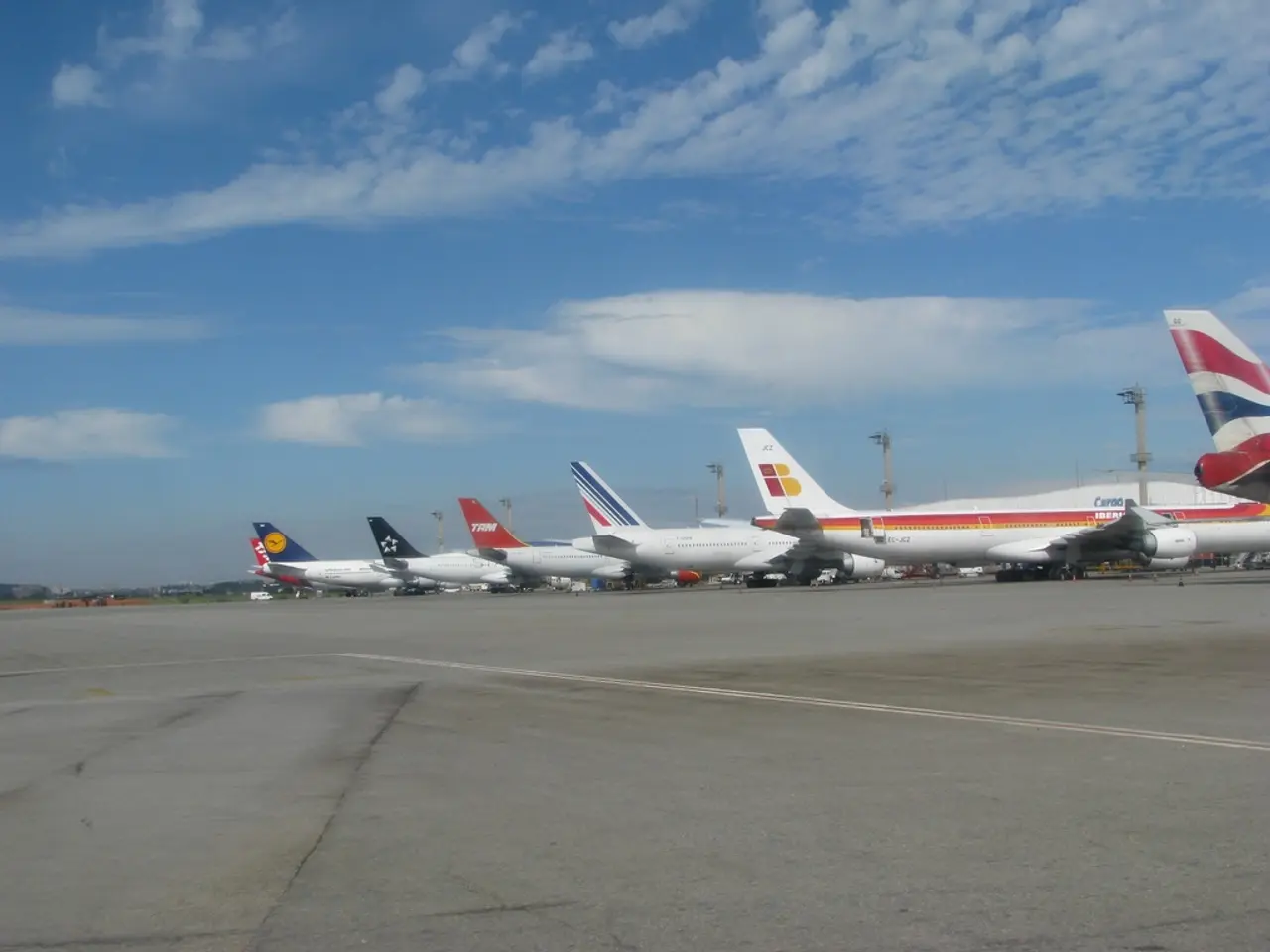Assured Air Traffic Stability Throughout Upcoming Travel Season - Predicted smooth air travel forthcoming, guaranteed by air traffic control authorities.
The German air navigation service provider, DFS, is working diligently to enhance air traffic control capabilities across Europe, responding to the growing demand for stable travel during peak seasons. The challenges and improvements faced by DFS and European Air Traffic Control (ATC) are numerous, with a focus on personnel, technology, and collaboration.
**Challenges:**
The unified European airspace, which includes the airspace managed by DFS, is expected to experience stable but high traffic volumes, with approximately 37,000 flights on peak days in July 2025. This consistent demand places pressure on ATC resources and systems. Furthermore, maintaining and expanding trained controller personnel to meet traffic growth and prevent delays or safety risks is a continuous challenge for many ATC providers worldwide.
Another significant challenge is the need for technological modernization. Many existing ATC infrastructures rely on outdated equipment, necessitating upgrades to integrate modern, efficient, and safer systems.
**Improvements and Responses:**
DFS is addressing these challenges by increasing personnel hiring, integrating technology, and collaborating with other European ATC providers. European and German authorities have prioritized "supercharging" the recruitment and training of new air traffic controllers to ensure operational stability during peak travel seasons.
DFS is also participating in SESAR (Single European Sky ATM Research)-supported programs to deploy next-generation aviation traffic management systems. These include automation, enhanced drone traffic management (U-space), and integration of emerging technologies for operational efficiencies and safety.
Through alliances like the Alliance of New Mobility Europe (AME), DFS is part of a coordinated effort to harmonize regulatory frameworks, standardize technologies, and deploy commercial solutions across European airspace. This helps in scaling innovations such as automation and unmanned traffic management while ensuring safety and efficiency.
**Preparing for the Summer:**
The operational managing director of DFS, Dirk Mahns, predicts a successful summer 2025 for the organization due to forward-looking planning and operational flexibility. DFS has been preparing for the current summer's air traffic since last fall. The workforce at DFS has been increased and given more flexibility compared to last year, ensuring adequate staffing to manage the expected high traffic volumes.
Despite criticisms from airlines and their associations regarding increased costs, inefficient processes, and frequent strikes, particularly in France, DFS has not faced such criticism specifically. The organization has managed both civilian and military air traffic in German airspace effectively, with more aircraft being guided with the most modern air traffic control systems than before.
However, geopolitical crises, such as those in the Middle East or the Ukraine conflict, restrict airspace and pose challenges for DFS. Despite these challenges, DFS remains committed to maintaining safety, improving efficiency, and ensuring a stable and smooth travel season in the increasingly busy European skies.
- The European and German authorities are prioritizing the recruitment and training of new air traffic controllers, as part of a community policy to "supercharge" operational stability during peak travel seasons, considering the high volume of flights anticipated in 2025.
- In response to the need for technological modernization, DFS is collaborating with other European Air Traffic Control providers and participating in SESAR programs to develop next-generation aviation traffic management systems, including automation, enhanced drone traffic management, and integration of emerging technologies for operational efficiencies and safety, reflecting a lifestyle shift towards more travel.




